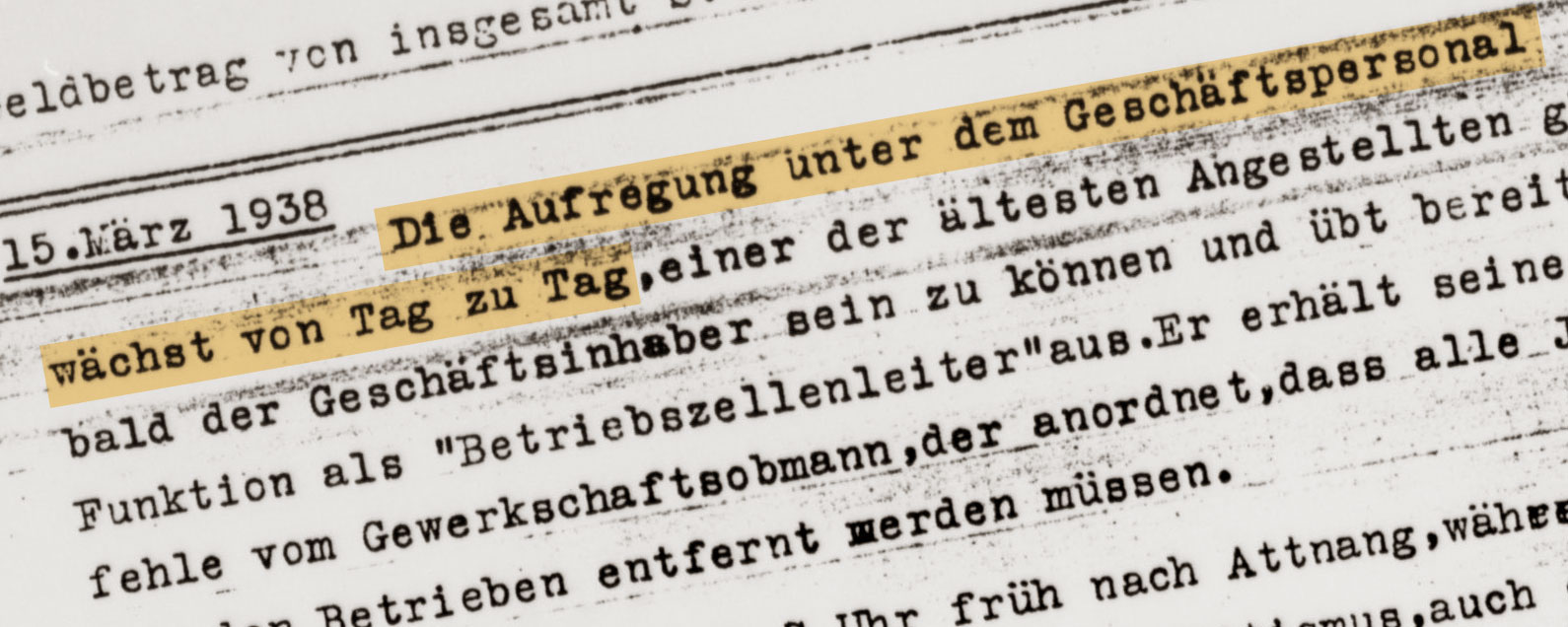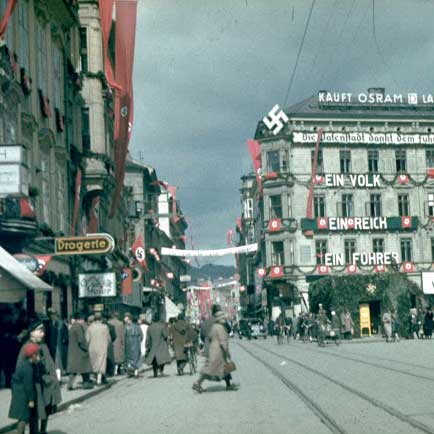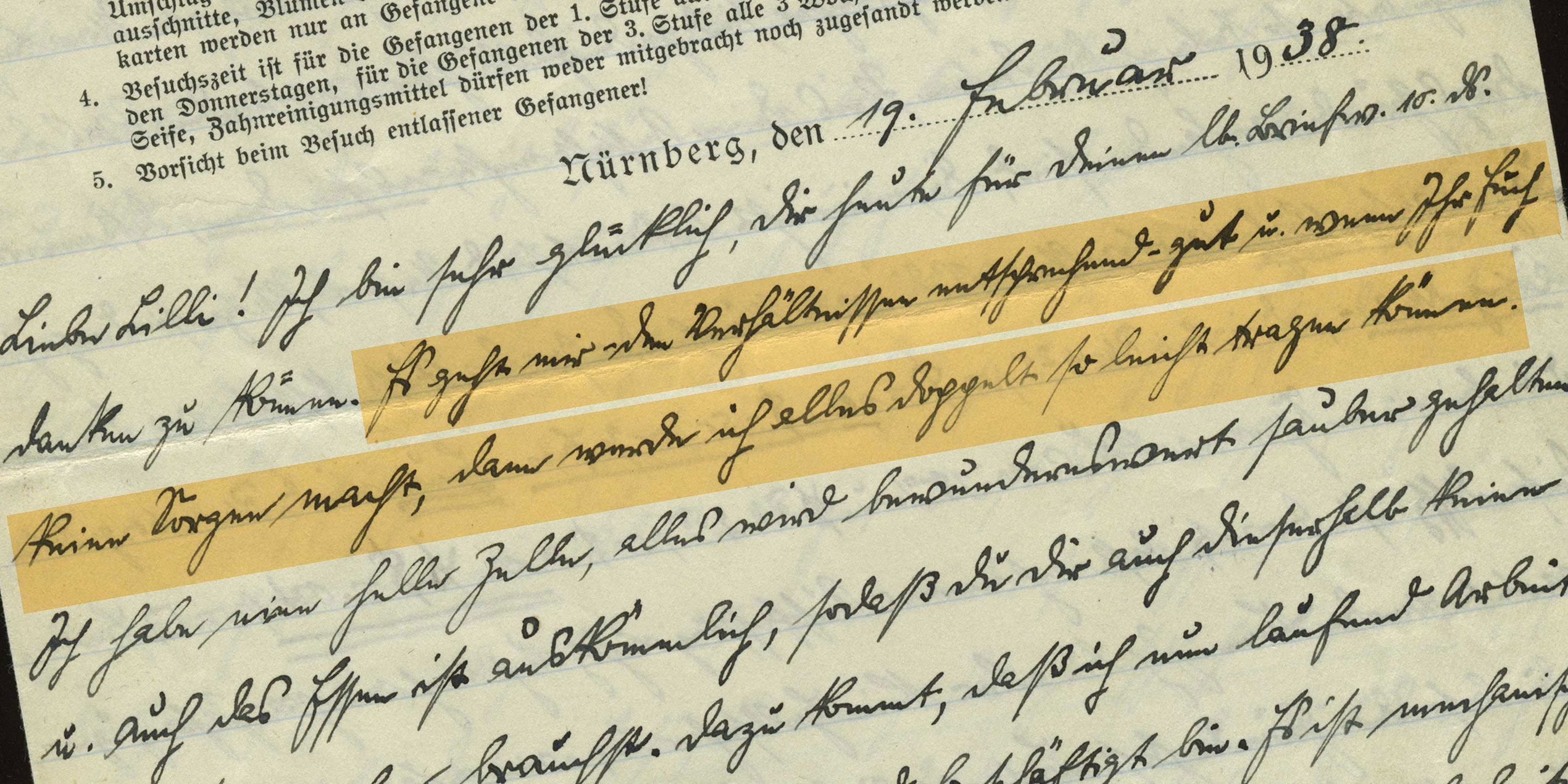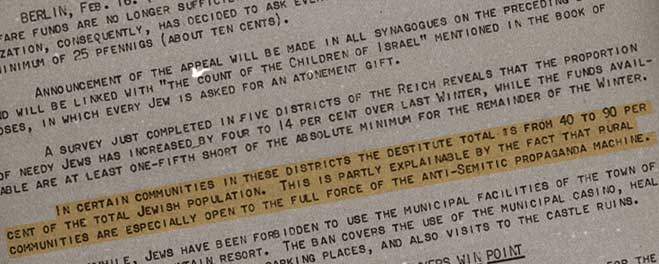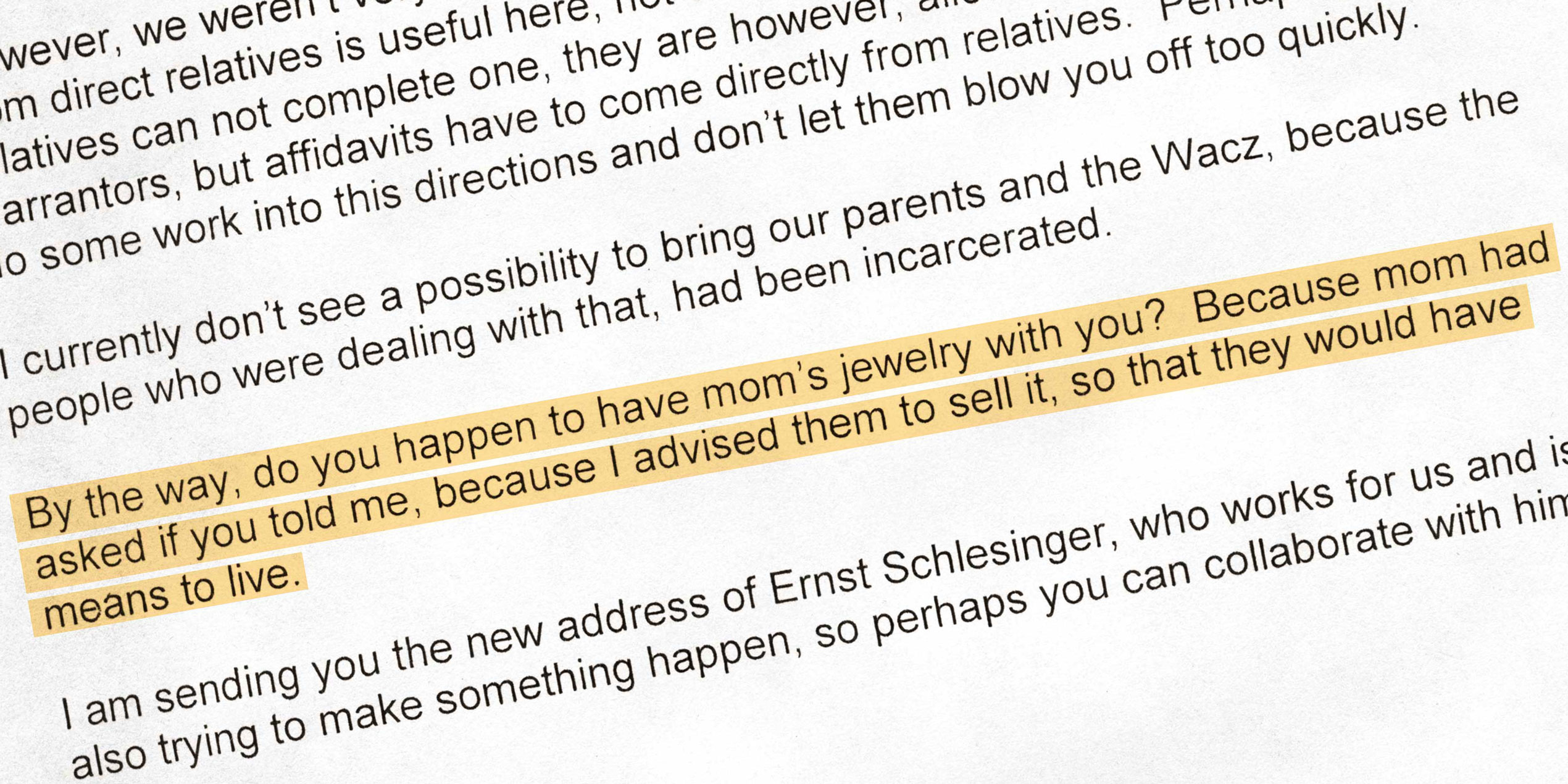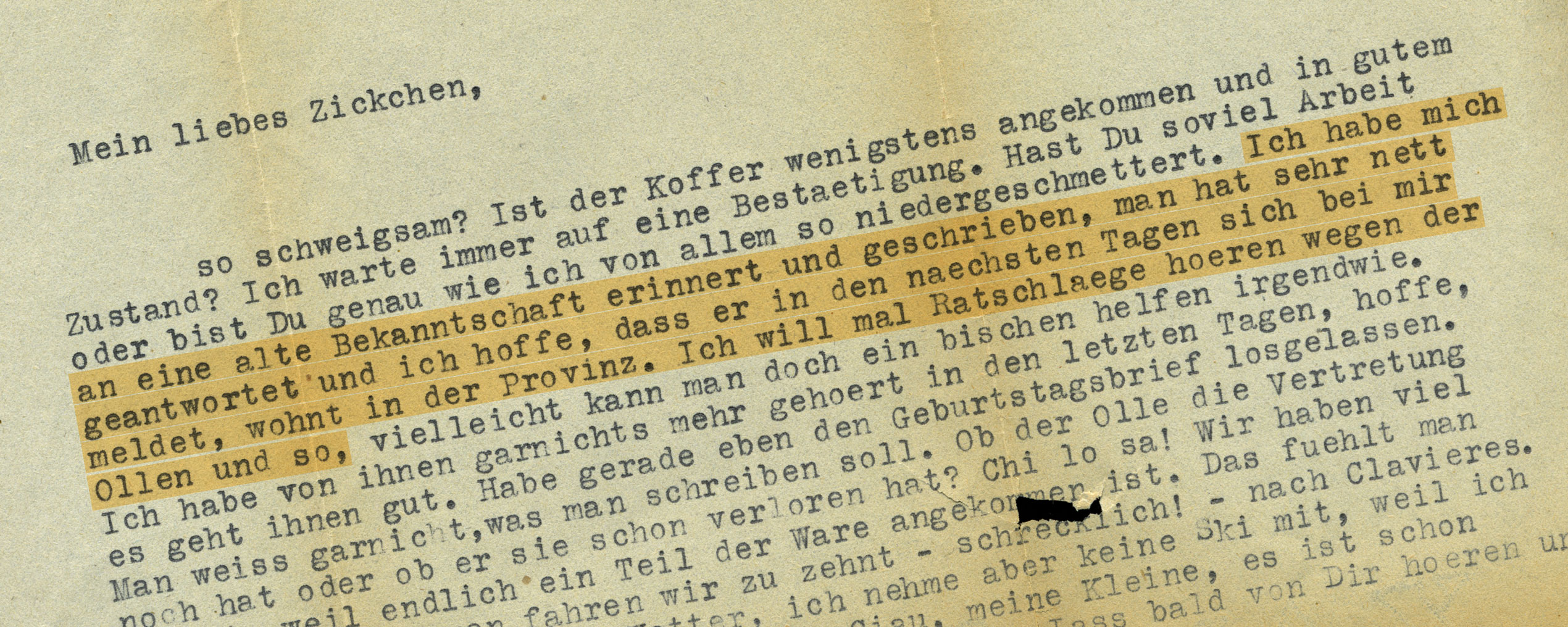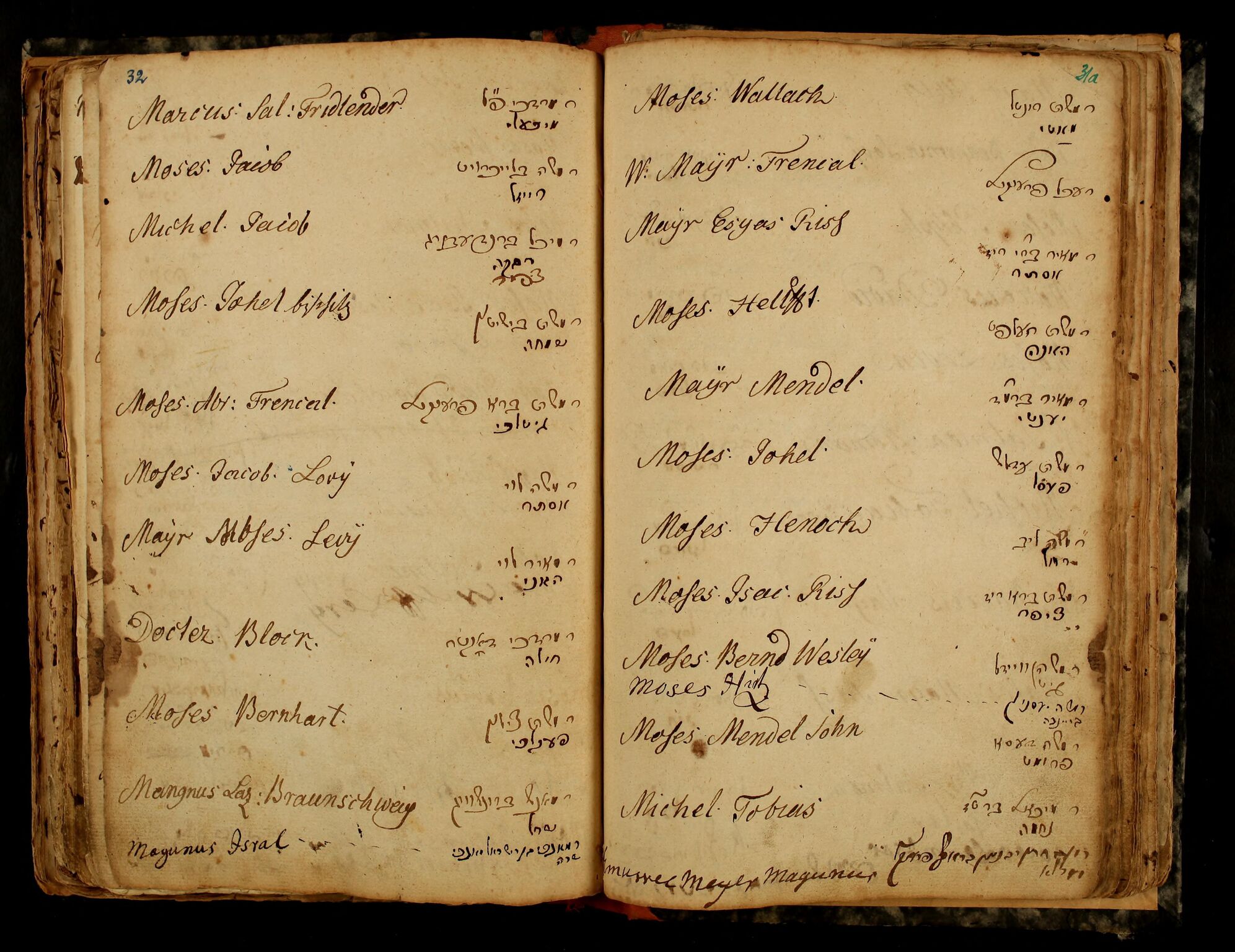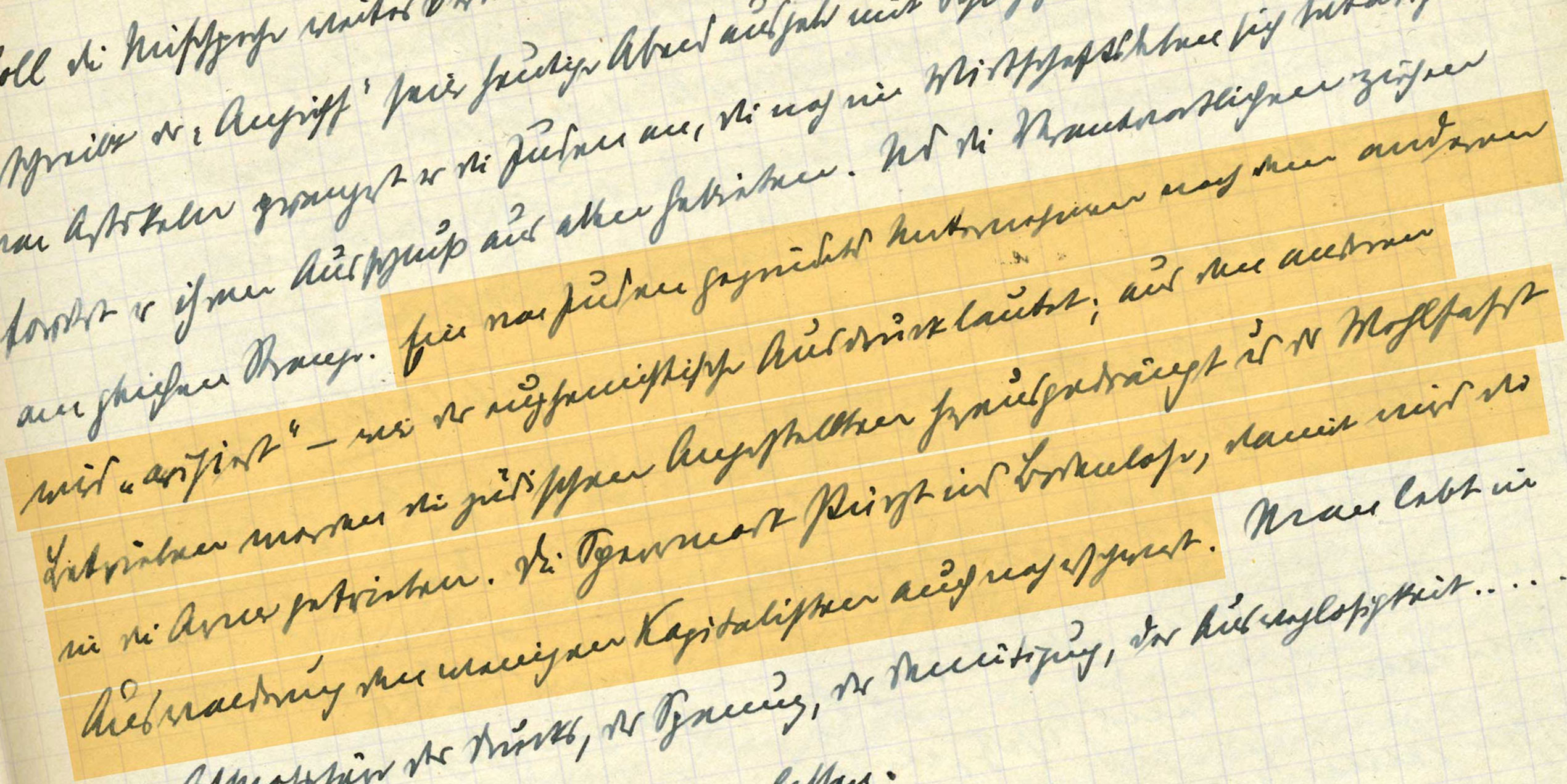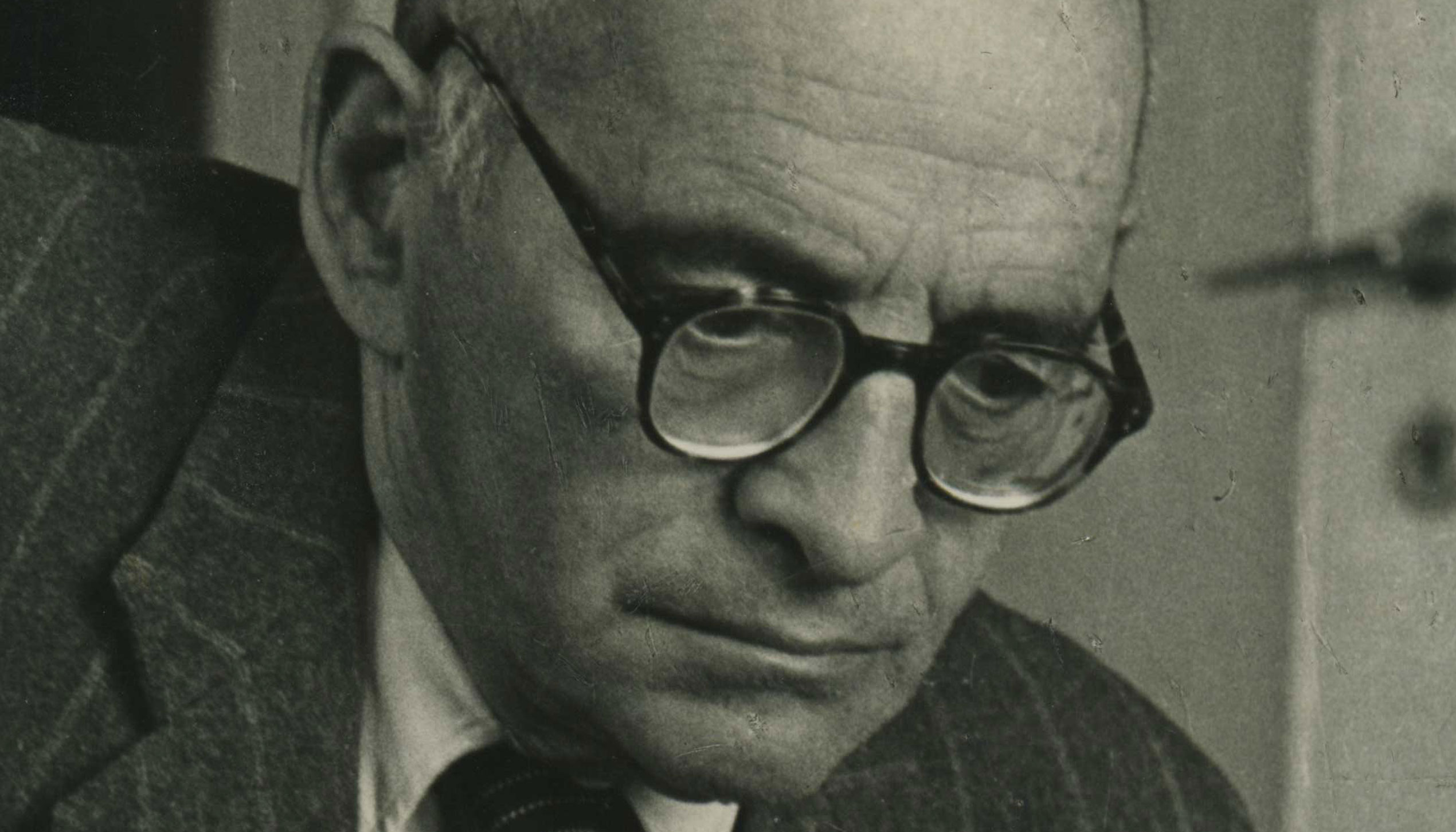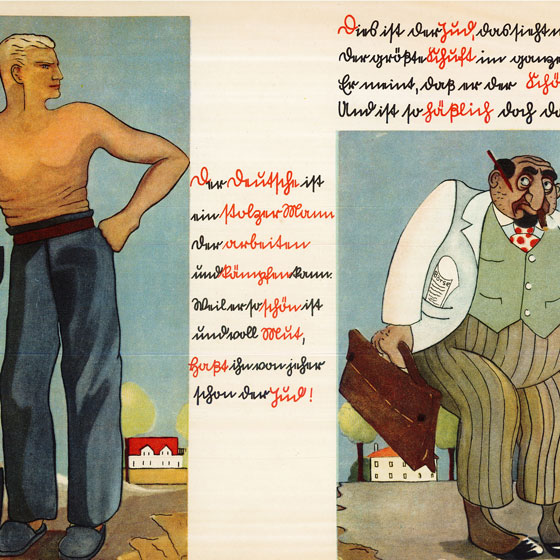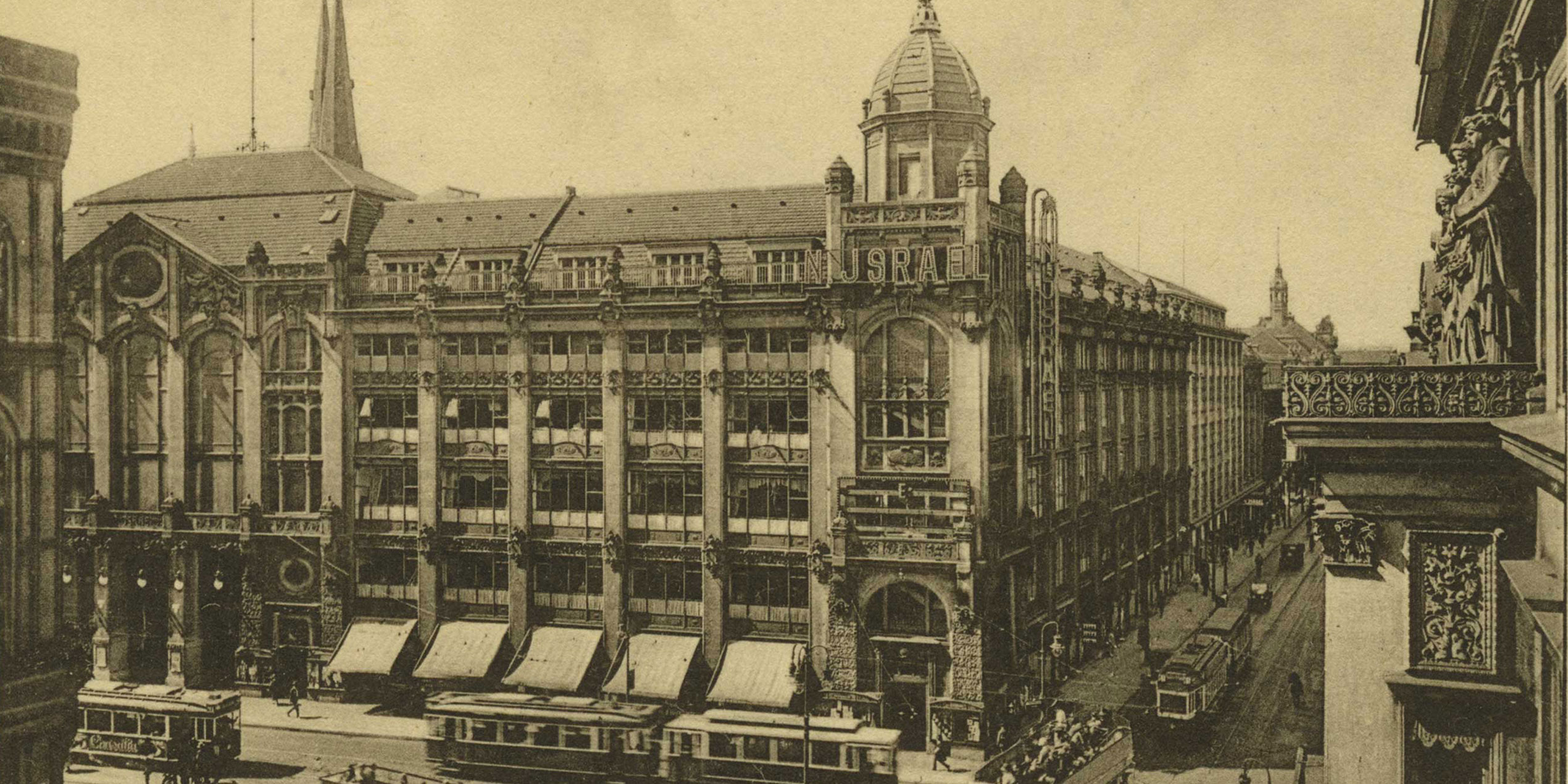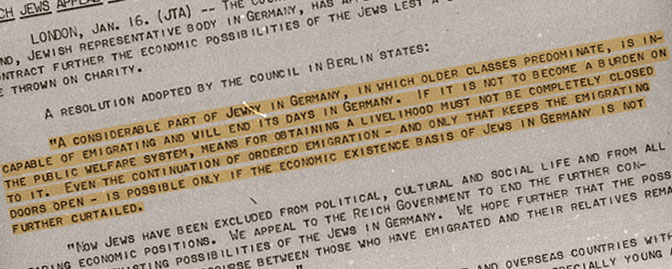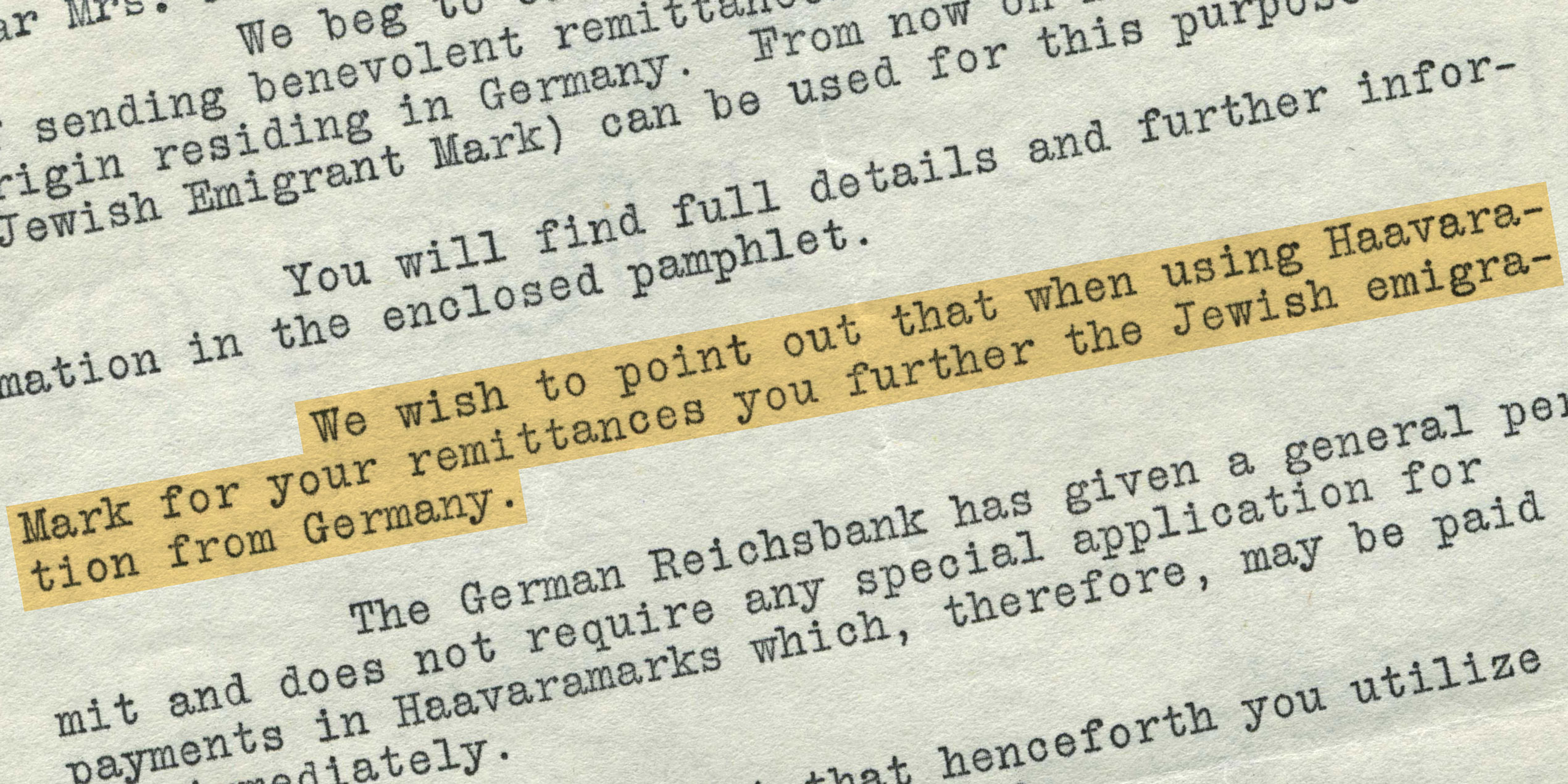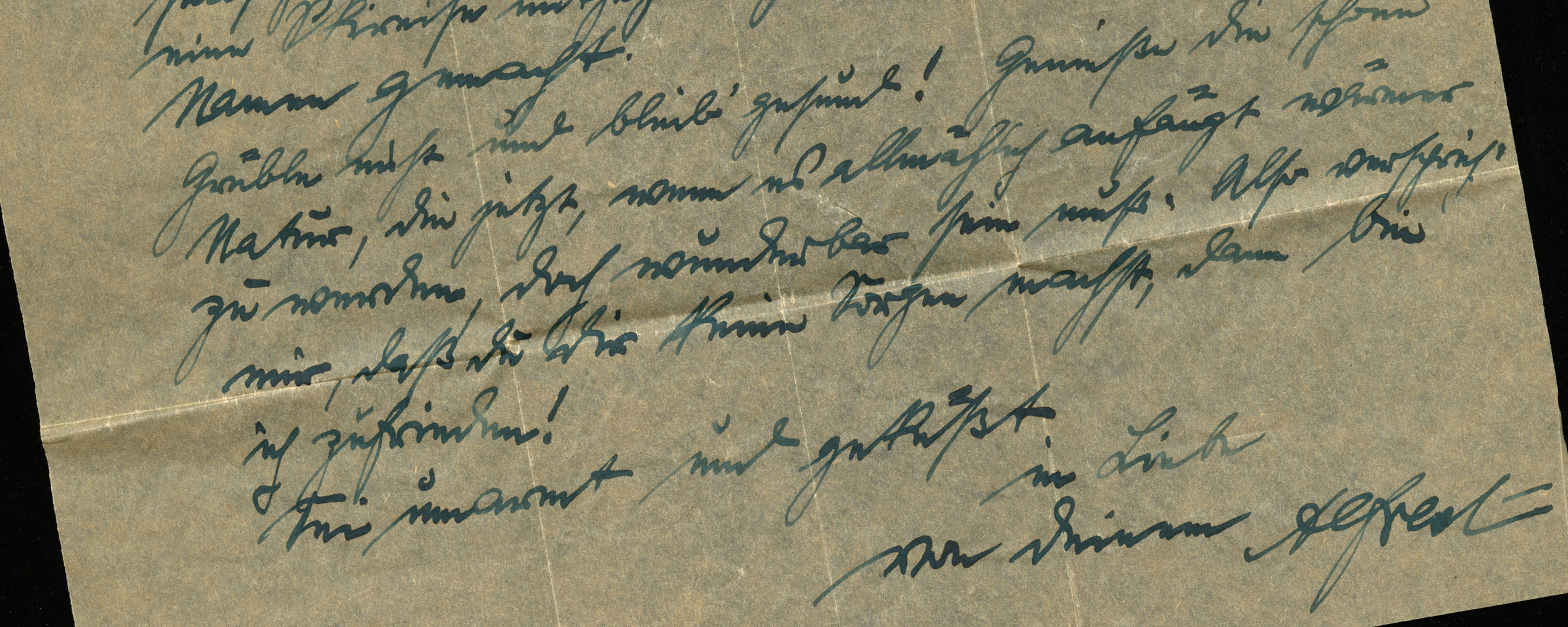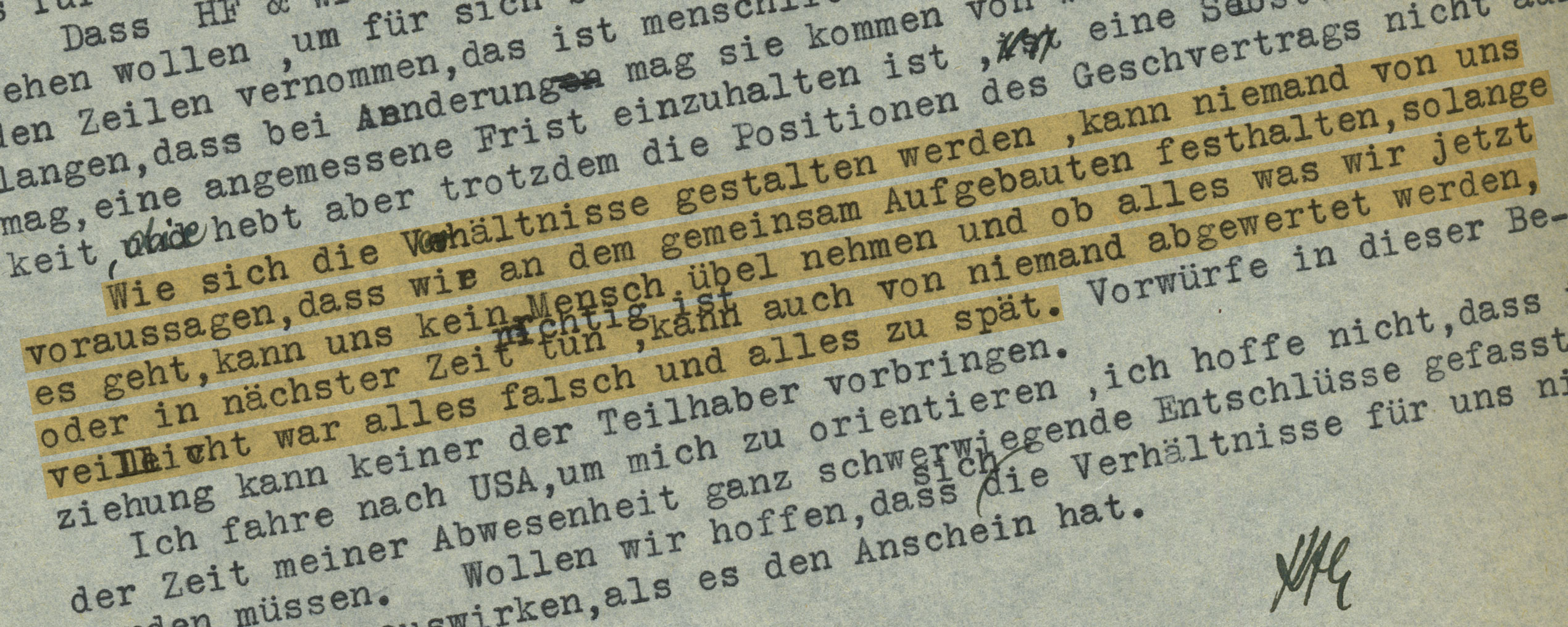Aryanization
Forced sale of a cotton mill
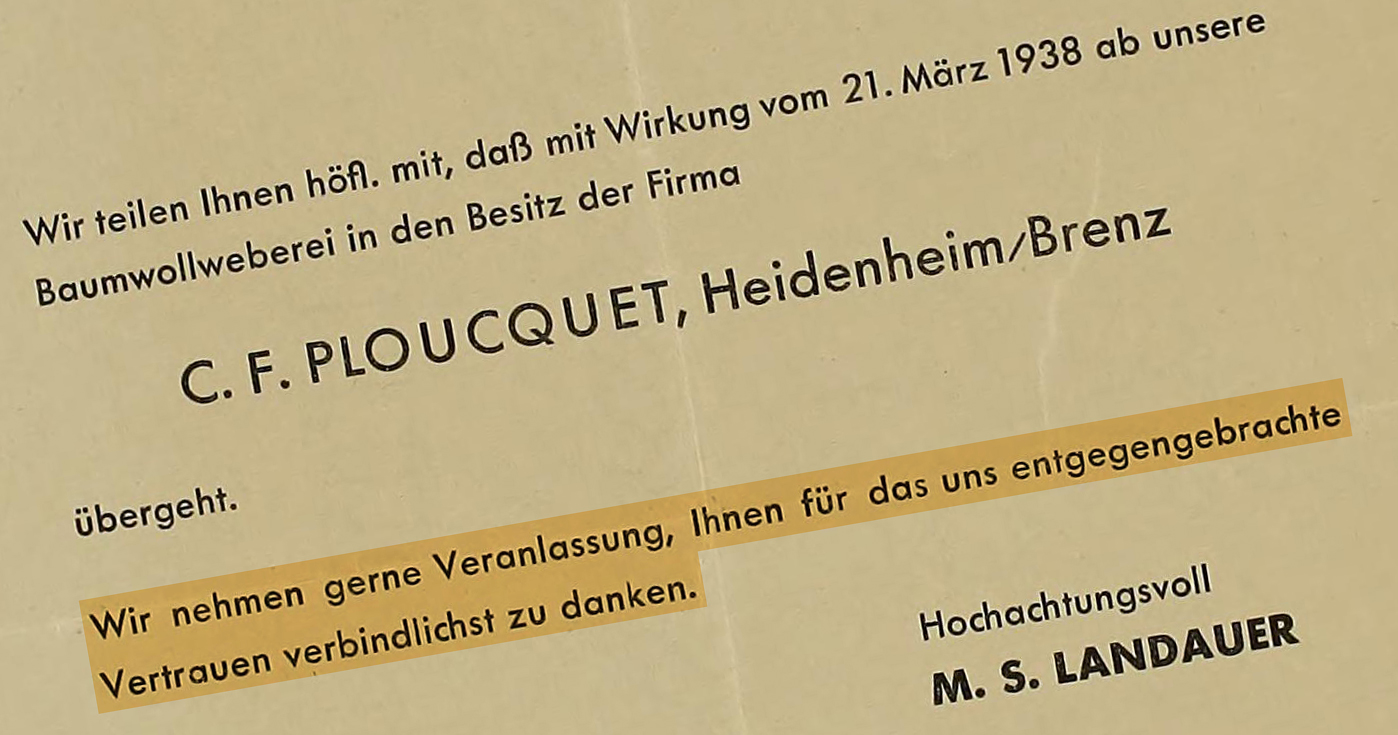
“We are pleased to take this opportunity to thank you for the confidence you have shown us.”
Augsburg
After more than one hundred successful years in business, the cotton weaving mill M.S. Landauer in Augsburg announces the sale of the company. Throughout the Nazi period, as part of the program of “Aryanization”, Jews were coerced into selling their property to non-Jews, usually significantly below market value. In some cases, owners preempted official orders by selling to a trusted business associate, which did not generally help them avoid major losses. Ironically, the founder of the F.C. Ploucquet company, which now owned the plant, had been of Huguenot extraction and thus himself belonged to a community that had experienced severe persecution.
SOURCE
Institution:
Leo Baeck Institute – New York | Berlin 
Collection:
Landuaer Family Collection, AR 207 
Original:
Box 1, folder 2








































